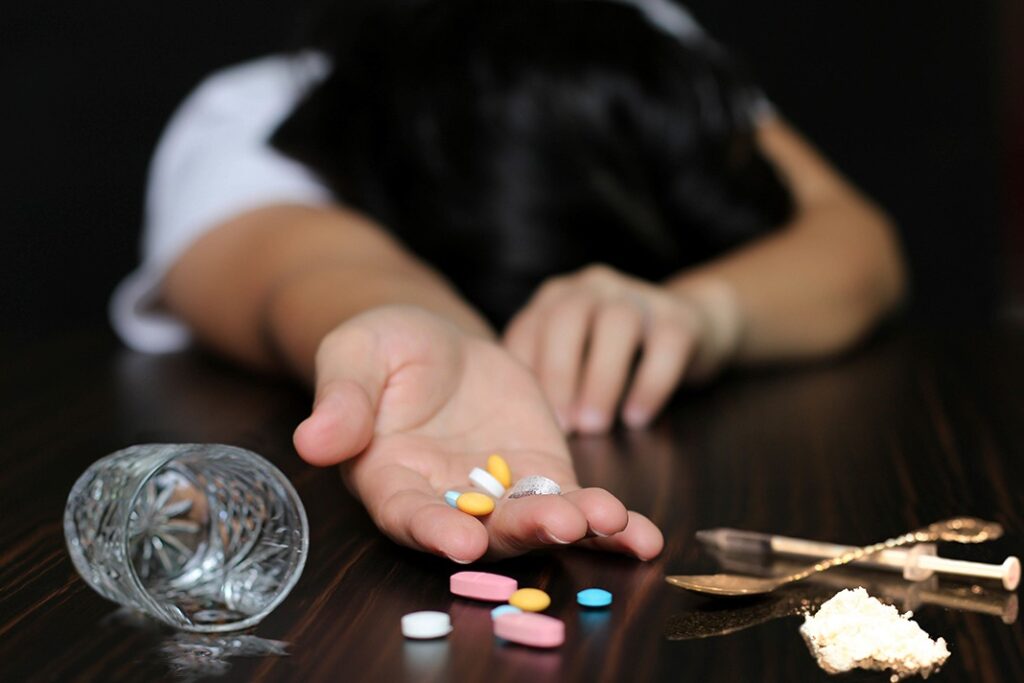Overcoming Obstacles: A Comprehensive Guide to Battling Addiction
Addiction is a complex issue that affects millions of people worldwide, cutting across all demographics. It's a pervasive problem that impacts not only the individuals struggling with addiction but also their families, friends, and communities. Whether you're a veteran, a teenager, or an athlete, overcoming addiction can be a daunting task. The path to recovery is often filled with obstacles and challenges that can seem insurmountable.
However, it's important to remember that addiction is not a choice, but a disease. It's a medical condition that requires understanding, compassion, and professional treatment. And while the journey to recovery can be difficult, it's far from impossible. With the right information, resources, and support, individuals can overcome these obstacles and move towards a healthier, happier life.
5 Common Challenges Faced in Addiction Recovery and How to Overcome Them
Embarking on the road to recovery from addiction is a brave and commendable decision. However, it's not a straightforward path and is often riddled with numerous obstacles. By familiarizing yourself with these challenges, you can arm yourself with the necessary knowledge to traverse this path successfully. In this in-depth article, we shine a light on the five most common challenges faced in addiction recovery. Additionally, we provide effective strategies to conquer these hurdles and move forward towards a healthier life.
1. Dealing with Withdrawal Symptoms: The journey to sobriety typically begins with detoxification, a process that purges your body of addictive substances. This period is often marked by withdrawal symptoms that range from mild discomfort to severe physical and psychological distress. Symptoms can include nausea, restlessness, depression, anxiety, and in more extreme cases, seizures. It's crucial to undergo detoxification under the supervision of healthcare professionals to manage these symptoms safely.
To overcome this obstacle, medical interventions like medication-assisted treatment (MAT) can be helpful. MAT combines medications with counseling and behavioral therapies to treat substance use disorders, providing a holistic approach to care. It can help ease withdrawal symptoms, reduce cravings, and lower the risk of relapse.
2. Managing Post-Acute Withdrawal Syndrome (PAWS): Following the initial withdrawal phase, some individuals experience a condition known as post-acute withdrawal syndrome (PAWS). Unlike the physical symptoms of withdrawal, PAWS is characterized by protracted emotional and psychological symptoms like mood swings, anxiety, insomnia, and cognitive impairment.
PAWS can be challenging to manage due to its unpredictable nature, but education and awareness about the syndrome are key. Understanding that these symptoms are part of the recovery process can provide some comfort. Additionally, seeking professional counseling and employing stress management techniques like meditation and exercise can significantly help mitigate PAWS symptoms.
3. Coping with Cravings and Triggers: Even when the acute withdrawal phase has passed, people in recovery must grapple with persistent cravings and potential triggers. These triggers, which are often environmental cues, can provoke a strong desire to return to substance use.
To combat cravings and triggers, it's important to develop a robust relapse prevention plan. This plan can include strategies like cognitive-behavioral therapy (CBT) to identify and manage triggers, regular exercise to reduce stress and cravings, and active participation in support groups for ongoing encouragement and accountability.
4. Rebuilding Broken Relationships: Addiction can cause considerable damage to relationships, often leading to broken trust and emotional hurt. As part of recovery, individuals are encouraged to repair these relationships, which can be a complicated and emotionally charged process.
Open communication, sincere apologies, demonstrating consistent change, and seeking family therapy can be effective steps in this rebuilding process. It's important to remember that this healing process takes time and patience from everyone involved.
5. Redefining Identity and Purpose: Another common challenge faced by individuals in recovery is the task of redefining their identity outside of their addiction and finding a new purpose in life. For many, their substance use became a significant part of their self-perception, and removing that can leave a void.
Filling this void often involves exploring new interests, setting personal goals, and perhaps pursuing a new career or educational opportunities. Support groups and individual therapy can also provide guidance and support during this transition, encouraging individuals to envision and work towards a fulfilling, substance-free future.
Addiction Treatment for Veterans
Veterans often face unique challenges in their battle against addiction. Here are some resources specifically designed to help veterans.
- VA Programs: The Department of Veterans Affairs offers a variety of programs to help veterans overcome addiction.
- Specialized Treatment Centers: Many private treatment centers offer programs specifically designed for veterans, providing care that takes into account the unique experiences and challenges faced by those who have served in the military.
Addiction Treatment for Teens
Teenagers are particularly vulnerable to addiction due to factors such as peer pressure and the stresses of adolescence. Here's how to help them.
- Teen-Specific Treatment Programs: These programs are designed to address the unique challenges that teenagers face. They offer a combination of therapy, education, and support.
- Family Involvement: Family involvement is crucial in teen addiction treatment. Parents and siblings can provide support and encouragement during the recovery process.
Hydration Strategies for Athletes
Athletes may face unique pressures that can lead to substance abuse. However, maintaining proper hydration can be a natural and healthy way to enhance performance and manage stress.
- Consistent Hydration: Athletes should ensure they are consistently hydrated, not just during exercise, but throughout the day.
- Choosing the Right Drinks: Water is the best choice for hydration, but sports drinks can be beneficial during long or intense workouts.
The Importance of a Support System
A strong support system is crucial in the journey to overcome addiction. Friends, family, and support groups can provide the encouragement and understanding needed during this challenging time. They can celebrate your victories and help you navigate through the tough times. Remember, you're not alone.
Conclusion:
In conclusion, overcoming addiction is a challenging journey, but it's not an impossible one. It's a journey that requires courage, commitment, and a willingness to seek help when needed. It's a journey that involves learning new ways to cope with stress, building a strong support system, and making lifestyle changes that promote overall health and well-being.
The strategies and resources outlined in this guide can provide a starting point, but remember that each person's journey to recovery is unique. What works for one person may not work for another. It's important to find a treatment plan that fits your individual needs and circumstances.







